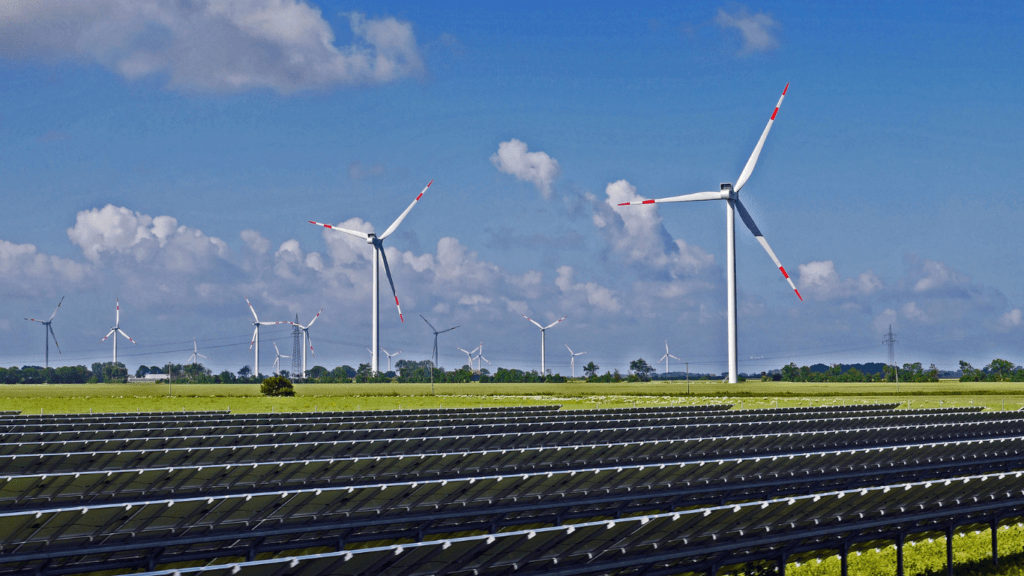Overview of Economic Shifts
Economic shifts shape startup investment trends. Economic growth and recession cycles directly influence investor confidence and capital availability. High-growth periods often lead to increased investments, while recessions can cause capital withdrawal.
Fiscal policies, such as tax changes and government spending, alter the investment landscape. Expansionary policies often boost startup funding, whereas contractionary policies might reduce available capital. Interest rates also have significant effects; lower rates typically encourage borrowing and investment, while higher rates can deter them.
Global events, including political changes, trade policies, and technological advancements, impact startup ecosystems. For instance, regulatory changes in major economies can either foster or hinder startup growth. Trade tensions might restrict market access, affecting cross-border investments.
Investor sentiment shifts with economic conditions. During stable periods, investors are more willing to take risks on startups. However, in times of uncertainty, they might prefer safer, established ventures. Trends like these highlight the interconnectedness of economic factors and startup investment behaviors.
Understanding these dynamics helps predict potential changes in startup funding. By monitoring economic indicators, I can make better-informed investment decisions and navigate the complex startup landscape.
Historical Trends in Startup Investments
Startup investments have evolved significantly over time, reflecting broader economic trends and investor behaviors. Understanding these historical patterns is crucial for comprehending current and future investment dynamics.
Pre-2008 Financial Crisis Era
Before the 2008 financial crisis, startup investments followed a pattern of gradual growth. Venture capital was more conservative, with investors often favoring well-established markets. In the late 1990s, the dot-com bubble led to a surge in funding for internet-based startups. However, this surge was followed by a sharp decline after the bubble burst in 2000.
From 2001 to 2007, investment trends stabilized with moderate growth. Investors focused on sectors like software, biotechnology, and telecommunications. Internet startups continued to receive funding, but with a renewed emphasis on business viability and revenue potential.
Post-2008 Recovery Phase
The 2008 financial crisis caused a significant contraction in startup investments. Many investors pulled back, leading to a drop in available capital. However, this contraction was followed by a strong recovery starting around 2010. The rise of unicorn startups, valued at over $1 billion, became a notable trend during this period.
From 2010 to 2015, funding shifted towards technology sectors like fintech, health tech, and artificial intelligence. Crowdfunding platforms also emerged as new avenues for raising capital. By 2016, global investment levels rebounded to pre-crisis levels, showcasing the resilience of the startup ecosystem despite economic turbulence.
Recent Economic Changes
Economic shifts alter investment landscapes rapidly. Examining recent changes reveals patterns critical for startup investments.
COVID-19 Pandemic Impact
The pandemic reshaped the global economy. Startups faced unprecedented challenges, including reduced consumer spending and disrupted supply chains. Many pivoted to digital solutions, leading to a surge in tech adoption.
Investors favored sectors like telehealth, e-commerce, and remote work technologies. However, sectors like travel and hospitality suffered significant losses. According to CB Insights, global venture funding dropped 13% in Q1 2020 but rebounded as digital transformation accelerated.
Inflation and Interest Rates
Rising inflation and changing interest rates impact investment behaviors. High inflation often leads to increased operational costs for startups. Investors may become cautious, prioritizing profitability over growth.
For instance, during inflation spikes in 2021, funding for fintech and cleantech sectors grew as these industries offered hedges against economic uncertainty. Conversely, higher interest rates make borrowing more expensive, potentially slowing down startup expansions. Data from Crunchbase shows a 15% decline in venture capital deals in high-interest periods compared to low-interest ones.
Emerging Investment Trends
Economic shifts drive changes in startup investment trends. Recent years highlight the growing focus on specific sectors showing resilience and innovation.
Rise of Fintech and Edtech
- Fintech investments soared due to digital transformation demands.
- CB Insights, global fintech funding reached $105 billion in 2020, a 10% increase from 2019.
- Startups offering online banking, digital wallets, and blockchain technology attracted significant interest.
- PayPal, Coinbase, and Robinhood are prime examples of funded fintechs.
- Edtech also saw substantial growth. COVID-19 propelled online learning, leading to a rise in cloud-based education platforms. For example, Coursera and Duolingo attracted considerable investments as remote learning became essential.
Sustainable and Green Technologies

Investments in sustainable technologies gained momentum. McKinsey reports that funding for climate tech startups reached over $60 billion in 2021, with a noticeable uptick in renewable energy solutions, electric vehicles, and carbon capture technologies. Companies like Tesla and Beyond Meat exemplify successful green tech startups.
Green financing initiatives like green bonds also saw increased participation. Startups focusing on sustainability benefited from investor interests aligning with environmental, social, and governance (ESG) criteria. This trend promotes long-term sustainable growth in the startup ecosystem.
Overall, fintech, edtech, and green technologies are emerging as key areas of interest for startup investments due to their potential for innovation and sustainability amidst economic shifts.
Regional Variations
Regional variations in economic conditions significantly influence startup investment trends. Investors adapt strategies based on regional economic performance and local market demands.
North America
North American startups benefit from robust financial systems and an entrepreneurial culture. The U.S. leads in venture capital investments, with Silicon Valley as a hub for tech startups. In Canada, government initiatives like the Venture Capital Action Plan support early-stage startups.
Europe
European startups face diverse economic conditions due to the EU’s multi-country composition. While the UK remains a strong player in fintech following Brexit, Germany attracts investments in green technologies. Southern Europe, including Spain and Italy, sees growth in tourism tech startups due to regional tourism recovery efforts.
Investor Sentiment and Behavior
Investor sentiment directly influences startup investment trends. Behavior shifts in response to economic conditions and emerging opportunities.
Risk Appetite Adjustments
Investors often adjust their risk appetite during economic shifts. In uncertain times, they may favor established and resilient businesses over new ventures. For example, after the 2008 financial crisis, there was a noticeable shift towards investing in startups with proven business models and steady revenue streams.
Risk-averse investors prioritize startups in sectors that demonstrate stability, such as healthcare and essential services, especially during economic downturns.
Shift Toward Long-Term Investments
Economic shifts also drive a preference for long-term investments. Investors seek ventures with sustainable growth potential, aligning with broader economic recovery trends.
Tech sectors like:
- AI
- clean energy
- fintech
represent substantial long-term value. For instance, climate tech startups have attracted significant interest, with $60 billion in funding in 2021. Investors recognize the potential for high returns in sectors addressing global challenges.
Sustainable growth areas often see increased investment in times of economic recovery, offering more predictable and lucrative outcomes.

 Chief Marketing Officer (CMO) & Unique Author
Annamae Solanoric is the Chief Marketing Officer and a distinctive voice within the company as a unique author. Combining her passion for storytelling with her deep expertise in branding and digital marketing, she not only leads the company’s marketing strategies but also crafts compelling narratives that engage and inspire audiences. Her work as an author has been widely recognized, and she seamlessly integrates her creative vision into building the company’s brand. Annamae’s leadership in both marketing and content creation drives innovation and helps establish strong connections with clients and partners alike.
Chief Marketing Officer (CMO) & Unique Author
Annamae Solanoric is the Chief Marketing Officer and a distinctive voice within the company as a unique author. Combining her passion for storytelling with her deep expertise in branding and digital marketing, she not only leads the company’s marketing strategies but also crafts compelling narratives that engage and inspire audiences. Her work as an author has been widely recognized, and she seamlessly integrates her creative vision into building the company’s brand. Annamae’s leadership in both marketing and content creation drives innovation and helps establish strong connections with clients and partners alike.
